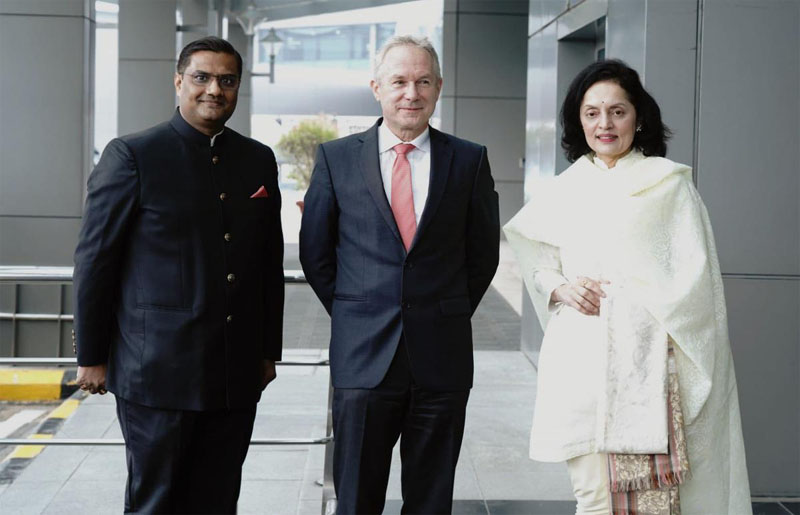UNITED NATIONS, Jan 29:
The UN Security Council does not reflect today’s realities, is paralysed and unable to discharge its basic function of maintaining international peace and security when one of its permanent members has attacked its neighbour, UN General Assembly President Csaba Korosi has said.
Russia, a veto-wielding permanent member of the UN, attacked Ukraine in February 2022. Russia has vetoed UNSC resolutions on Ukraine while it has voted against a resolution in the UN General Assembly which calls on countries not to recognise the four regions of Ukraine that Russia has claimed.
Korosi, a Hungarian diplomat currently serving as President of the 77th United Nations General Assembly, said that there is a push from a growing number of member nations to reform the powerful UN organ.
“The Security Council which has been created back then” and given the primary responsibility of maintaining “international peace and security and preventing wars now is paralysed,” he told PTI ahead of his visit to India.
Korosi will arrive in India on Sunday on a three-day visit at the invitation of External Affairs Minister S Jaishankar. It is his first bilateral visit to any country since he assumed his role as President of the UN General Assembly in September 2022.
“The Security Council cannot discharge its basic function for a very simple reason. One of the permanent members of the Security Council attacked its neighbour. The Security Council should be the body to take action against the aggression. But because of the veto power, the Security Council cannot act,” he said, in a reference to Russia’s invasion of Ukraine.
Korosi said this was a “very serious lesson learnt” for the future when talking about how to improve functioning of global organisations.
He said that the issue of UNSC reform is both “burning” and “compelling” since the composition of the Security Council reflects “the outcome of the Second World War”.
India has been at the forefront of the years-long efforts to reform the Security Council, saying it rightly deserved a place as a permanent member in the United Nations.
Currently, the UNSC has five permanent members – China, France, Russia, the UK and the US. Only a permanent member has the power to veto any substantive resolution.
In the 77-year-old history of the UN, the composition of the Security Council has been altered only once – in 1963 when the General Assembly decided to expand the Council from 11 to 15 members, with the addition of four non-permanent seats.
“Since then, the world has changed. The geopolitical relations in the world altered, the economic responsibilities in the world in some countries, including in India, including some other very strongly developing countries, actually changed,” Korosi said.
“So, the composition of the Security Council does not reflect today’s realities,” he said adding that not to mention “a whole continent with 50 plus countries, Africa,” is not in (the Council) in terms of permanent members.
In response to a question on whether he has hope for any forward movement in the long-pending UNSC reform, Korosi replied in the affirmative.
“Yes, I do have hope,” he said, noting that reform of the United Nations entails several areas and Security Council is “a very important” part of it.
Korosi stressed the reason for hope of the UNSC reforms is that the issue has been on the agenda for decades and negotiations have been going on for several years. (PTI)
Trending Now
E-Paper


